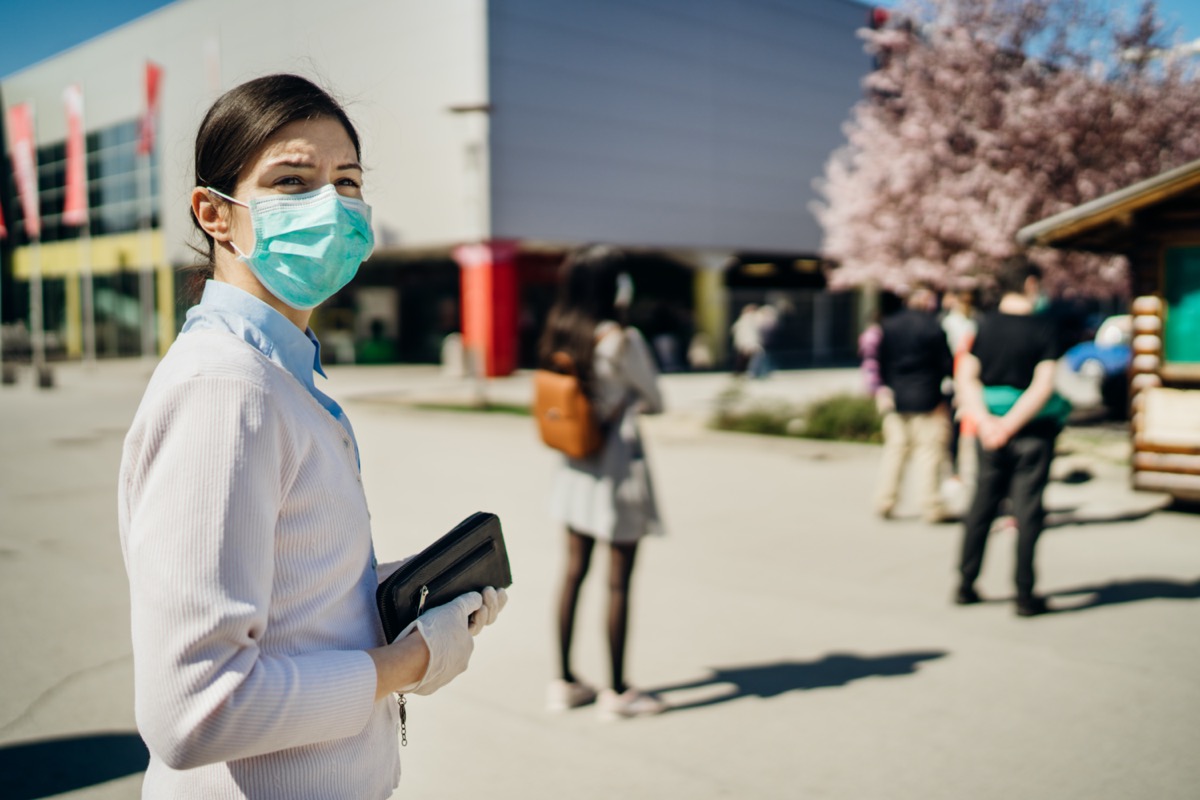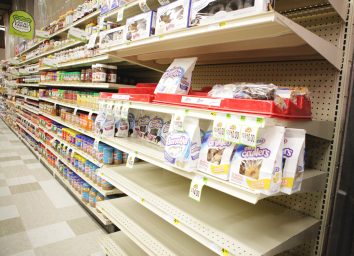The Worst Thing You Can Wear to the Grocery Store Right Now

By now, most of us have gotten used to the idea of popping on a face mask if we're going indoors to a public place where we can expect to encounter a lot of people—such as a grocery store. But, there's one thing you probably don't want to have on you when you head into the grocery store, and it's probably not something you'd expect: sunglasses.
That's right, wearing shades indoors is not just a fashion faux pas. It also could create opportunities for picking up unwanted germs, bacteria, and contagions that can put yourself at greater risk of contracting COVID-19. (For more on grocery stores, here are 8 Grocery Items That May Soon Be in Short Supply).
"You increase your risk to COVID exposure when you wear your shades shopping," says Gail Trauco R.N., BSN-OCN, patient advocate and CEO/founder of Medical Bill 911. "You wear your sunglasses on your head or clip them on your shirt and frequently touch or adjust them while shopping. It's an unnecessary risk for a 30-minute shopping venture."
Guy Fieri and Dog the Bounty Hunter should take note: Whether you're wearing your sunglasses on your face, on the back of your head, or clipped to your shirt, you're likely to touch them as you make your way through the store. Any frequently-touched item from the grocery store (like a shopping cart or basket) may have been touched by any number of shoppers and store employees. By touching that, then your glasses, you may be unconsciously spreading the virus.
"Shades are generally a plastic surface where coronavirus can 'live' from a few hours to several days, dependent upon the specific material," says Trauco. "There is a higher likelihood that an oil layer is already on the material from moisturizers or sunscreens. Additional cleaning is required to remove the oil residue and potential coronavirus, if exposed. Shades have bends and folds which are difficult to clean and are a 'hiding place' for COVID-19."
You might be thinking, wait, but isn't one of the ways COVID-19 spreads is by getting in your eyes? So wouldn't wearing glasses be a kind of defense? According to research from Johns Hopkins University School of Medicine, yes, the proteins from your eyes and even tears can transmit the coronavirus. But no, glasses do not serve as an effective defense, according to a different study published in the medical journal, Contact Lens & Anterior Eye. It found that a simple glasses frame "does not seal the air around the eyes, and, therefore, cannot provide adequate protection," said the lead author Lyndon Jones, director of the Centre for Ocular Research & Education at the University of Waterloo in Canada.
Worse, having something on your face that leads you to touch it will increase the likelihood you will directly touch your face—one of the last things you want to do when it comes to avoiding the spread of bacteria.
"Touching products at the store and then fidgeting with your sunglasses several times increases the chances of it becoming a breeding ground for bacteria and viruses," says Dr. Lina Velikova, MD, PhD, a medical advisor for Supplements101. "My suggestion is to keep your sunglasses tucked away at home or in their case and don't touch them until you've left the store and disinfected your hands."
Leann Poston M.D., M.B.A., M.Ed, a consultant for Invigor Medical, urges that personal items in general be kept to a minimum.
When shopping, try to minimize the number of personal items you take into the store. Sunglasses that lighten and darken based on light exposure are great because you need not touch them with your hands. Otherwise, "even if you wash your hands when you get home and are careful, the more things you bring with you the more likely you are to touch personal objects and contaminate them," Poston says.
"Sunglasses are removed and put on as you enter and leave the store. The COVID virus infects across mucous membranes, including the nose and eyes. Every time you touch possibly contaminated surfaces you need to wash your hands before touching any of your personal items." To keep yourself informed, sign up for our daily newsletter to get more safe grocery shopping tips.








